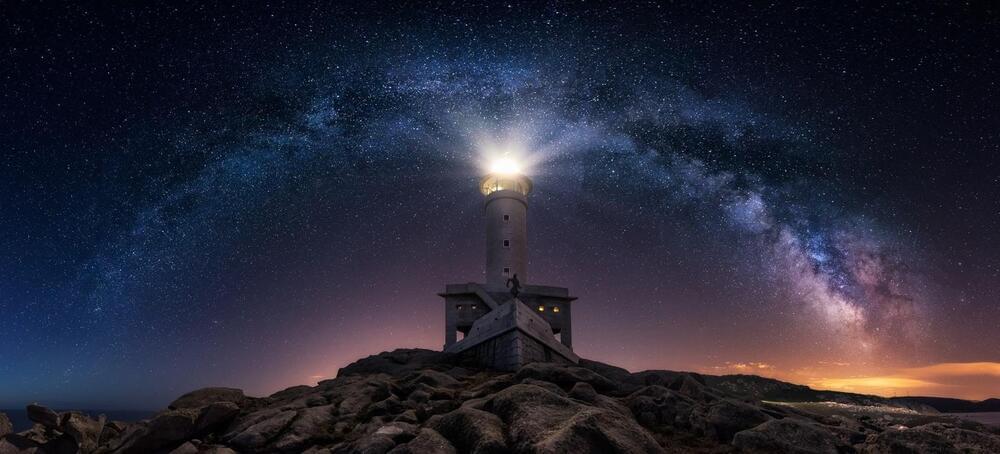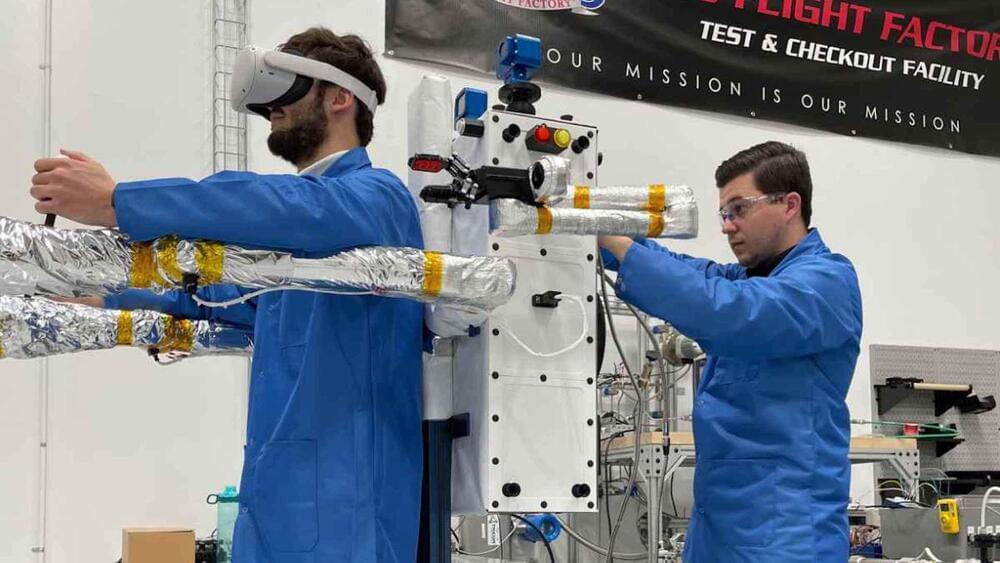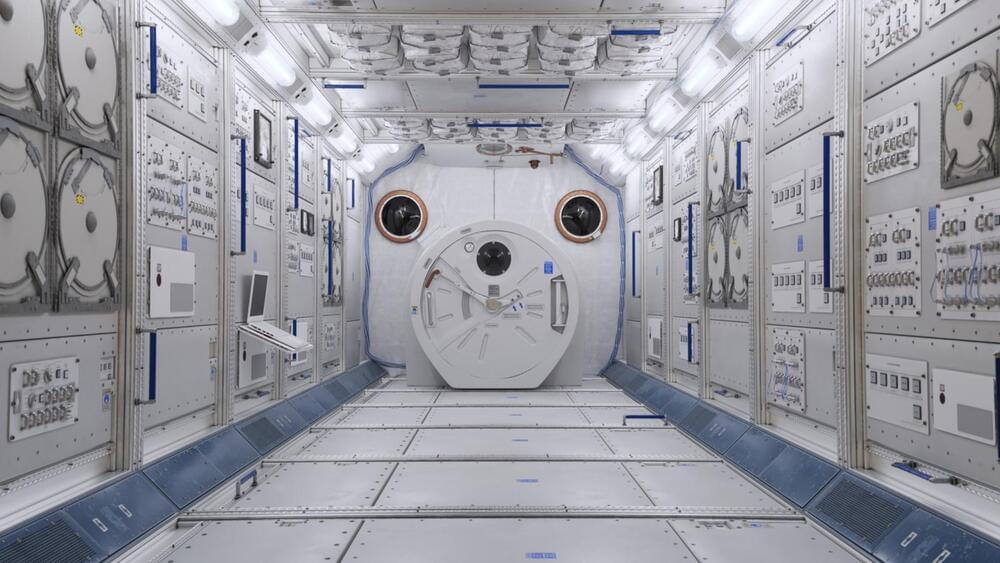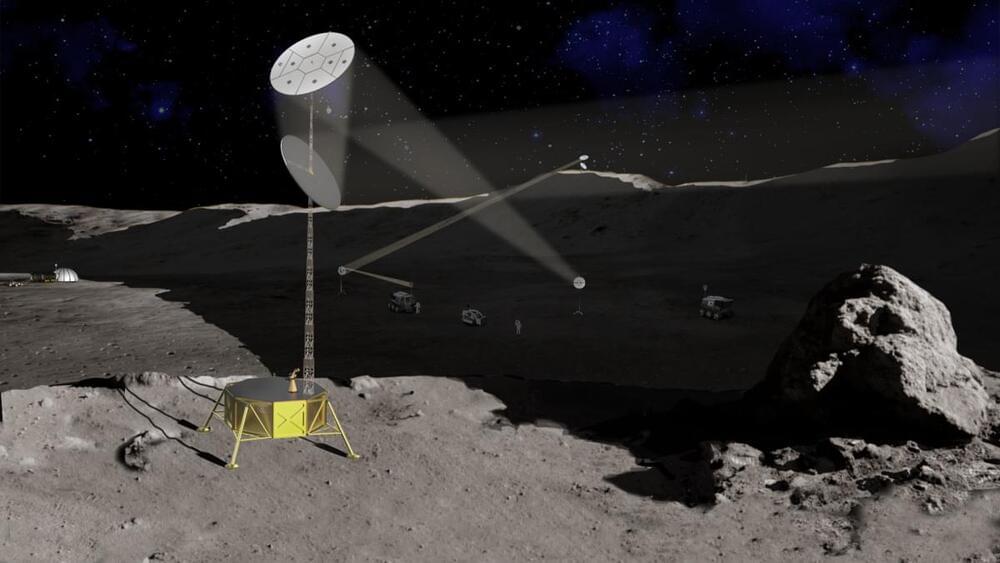A team of Brown brain and computer scientists developed a new approach to understanding computer vision, which can be used to help create better, safer and more robust artificial intelligence systems.



Scientists have found a group of ancient stars orbiting close to the center of our galaxy that may have formed in just the first billion years of the universe. That’s news because old stars are generally only found around the very edges of the Milky Way within the 150+ globular clusters—also called “galactic wanderers”—which may be linked to supermassive stars.
The Pristine Inner Galaxy Survey (PIGS), which reported their results at this week’s National Astronomy Meeting 2023 at Cardiff University in Wales, UK, were looking near the galaxy’s center because galaxy formation models suggest that there ought to be ancient stars there—though very few have ever been seen before.
Most ancient stars we know of are found around the halo of our Milky Way galaxy, but a new study has discovered many close to the galaxy’s heart.

The sun emitted a solar flare this week that was strong enough to cause radio blackouts on Earth — and it reportedly did.
NASA’s Solar Dynamics Observatory captured an image of the event, which showed a bright flash in the top right area of the sun. The flare was classified as a X1.0 flare, which means it is in the most intense class of flares, according to the agency.
The flare peaked at 7:14 p.m. Eastern Time on July 2, NASA said. It erupted from a sunspot that is seven times the width of Earth, according to Space.com, a website that chronicles news and events in space.
Free access to Closer To Truth’s library of 5,000 videos: https://closertotruth.com/
Our universe has been developing for about 14 billion years, but human-level intelligence, at least on Earth, has emerged in a remarkably short period of time, measured in tens or hundreds of thousands of years. What then is the future of intelligence? With the exponential growth of computing, will non-biological intelligence dominate?
Support the show with Closer To Truth merchandise: https://bit.ly/3P2ogje.
Watch more interviews on the future of the universe: https://rb.gy/xxeav.
Sasselov has been a professor at Harvard since 1998. He arrived to CfA in 1990 as a Harvard-Smithsonian Center post-doctoral fellow. Between 1999 and 2003 he was the Head Tutor of the Astronomy Department.
Register for free at CTT.com for subscriber-only exclusives: https://bit.ly/3He94Ns.

The US space agency continues to look toward the private sector as it plans for life beyond the International Space Station.
NASA has awarded a Space Act Agreement contract to Special Aerospace Services (SAS) to develop a commercial version of its Autonomous Maneuvering Unit (AMU) astronaut jetpack.
The move comes as the US space agency looks ahead to a future without the International Space Station (ISS), in which private companies will build and lift a series of commercial space stations to low Earth orbit.

What lies underneath Mars’ surface? Space scientists have long been curious about whether Mars’ core is solid or liquid.
What lies underneath Mars’ surface? Space scientists have long been curious whether Mars’ core is solid or liquid.
A team of experts led by the Royal Observatory of Belgium has discovered that Mars most likely has a liquid core.

The ground-based space station comprises multiple chambers that simulate different environments, ranging from the lunar surface to microgravity.
China has developed first-of-its-kind space station simulators to conduct various experiments and test instruments on Earth, as per the South China Morning Post (SCMP)
Reportedly, the researchers have already begun the first experimental operations of this project, known as the ground space station.

“Part of what we’re doing is conceptually simple, reflecting sunlight to a solar panel located in the dark,” said Maxar Chief Robotics Architect and lead for Light Bender Sean Dougherty in a Maxar statement. “Where it gets complex is doing that without humans involved. We’re leveraging investments in autonomy to study how NASA can use robots to assemble and deploy a set of reflectors that keep sunlight focused on a solar panel operating in the shadows. It’s never been done before.”
Light Bender works by hoisting two 33-foot (10-meter) reflectors up a 65-foot (20-meter) telescoping mast. One mirror autonomously tracks the sun and reflects that light to the second mirror, which then reflects those rays towards the intended solar panels.
The Light Bender project is a collaboration between Maxar and NASA’s Langley Research Center, and is scheduled for its first terrestrial demonstration in 2025. The company was awarded the contract in May 2023, under NASA’s Announcement of Collaboration Opportunity Program. For their part, NASA’s team is responsible for Light Bender’s structural design, and Maxar is taking the lead on the robotics — an aptitude for which the company has demonstrated in the past.

The very fabric of the universe is ringing with gravitational waves from its earliest epoch, and researchers have finally “heard” this cosmic symphony.
On Thursday, June 28, the North American Nanohertz Observatory for Gravitational Waves (NANOGrav) revealed the detection of low-frequency gravitational waves, a historic breakthrough that represents 15 years of searching. Yet, this isn’t the first time that humanity has detected gravitational waves. Scientists have been detecting these ripples in the fabric of space using facilities like the Laser Interferometer Gravitational-Wave Observatory (LIGO) since 2015.
Because of a peculiar effect velocity has on the appearance of the passage of time, our observations make it seem like time ran slower when the Universe was just a baby.
At least, that’s how it appears to us, at a light travel time of nearly 13 billion years away. This is called time dilation, and astrophysicist Geraint Lewis of the University of Sydney in Australia and statistician Brendon Brewer of the University of Auckland have seen it in the early Universe for the first time by studying the fluctuations of bright galaxies called quasar galaxies during the Cosmic Dawn.
Because of accelerating expansion of the Universe, they have found, we see those fluctuations unfold at a rate five times slower than if they were occurring nearby.